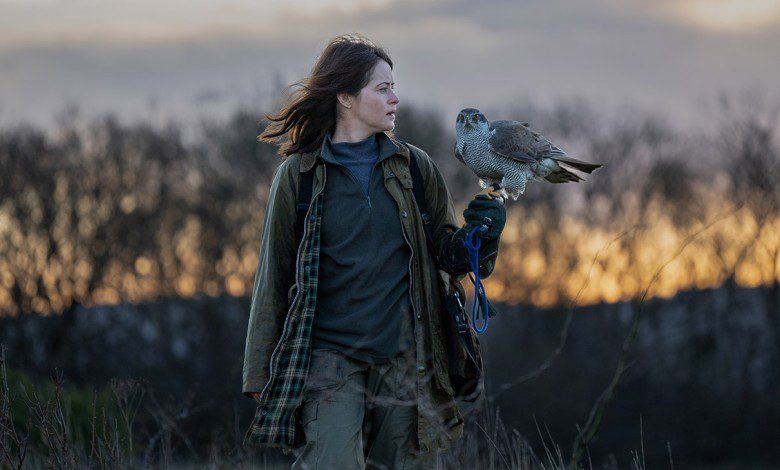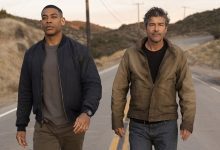‘H Is for Hawk’ Acquired by Roadside; Claire Foy Will Receive Oscar Push for Star Turn (Exclusive)

H Is for Hawk, a drama featuring a standout performance by Emmy, SAG and Golden Globe award winner Claire Foy (The Crown) as a grieving woman who finds renewed purpose through falconry, has had its North American rights acquired by Roadside Attractions. Roadside will give it an awards-qualifying theatrical release in December — largely to push Foy for recognition in this season’s wide-open best actress race — before opening it more widely in 2026, The Hollywood Reporter has learned.
Sister company Lionsgate will release the film in the UK and Ireland.
The film, which was co-written and directed by three-time BAFTA Award winner Philippa Lowthorpe (The Crown and Three Girls) and produced by the Oscar-winning Plan B Entertainment (12 Years a Slave and Moonlight), had its world premiere — and found many admirers — over Labor Day weekend at the Telluride Film Festival. It has since screened at the Zurich Film Festival and will next play at the BFI London Film Festival on Sunday.
In the film, which was adapted from the 2014 New York Times bestselling memoir of the same name by Helen Macdonald, Macdonald (Foy), an academic, unexpectedly loses her beloved father (The Banshees of Inisherin Oscar nominee Brendan Gleeson), with whom she had spent her whole life exploring nature, generally, and birding, specifically. She falls into a deep depression, from which she only begins to emerge after beginning to pursue — to the consternation of family and friends — the ancient art of falconry, adopting a wild goshawk named Mabel. As Helen teaches Mabel to hunt and fly free, she begins to discover just how deeply she has neglected her own emotions and what begins as an act of endurance transforms into a journey of healing.
“Claire Foy’s performance demonstrates an unprecedented combination of technical expertise and emotion in H Is for Hawk,” Roadside co-presidents Howard Cohen and Eric d’Arbeloff tell THR. “The film does nothing short of changing the viewer’s relationship to the natural world. Even her most ardent fans, who already know she is one of the finest actors working today, will be awestruck.”
Lowthorpe volunteers, “Making H is for Hawk has been a very special experience for me. Not only have I got to know the incredible Helen Macdonald and learn how to film Goshawks, but I’ve also had the chance to collaborate with the brilliant Claire Foy again. She is the most extraordinary actor and her performance as Helen is nothing less than remarkable — honest, raw, funny and incredibly moving; she is simply mesmerizing. I am also excited that we are partnering with Roadside Attractions to fledge our film and let it fly.”
The film, which was co-written by Oscar nominee Emma Donoghue (Room) and beautifully shot by Charlotte Bruus Christensen (A Quiet Place and Far from the Madding Crowd), also stars Tony award winner Denise Gough, BAFTA award nominee Lindsay Duncan and Sam Spruell. Executive producers include Farhana Bhula and Ollie Madden of Film4, who developed the screenplay with Plan B; Hannah Blackwell, Ryan Malachowsky and Tory Lenosky of Saturnia; Annie Yang, Tanat Tananivit, Kip Tiaviwat and Cod Satrusayang of Kliff Studios; Jonathan E. Lim, Robin Jonas and Steven P. Wegner of City Hill Arts; Naomi Despres and Michèle Marshall of Desmar; James Pugh and George Hamilton of Protagonist Pictures; Lena Headey and Tina Thor of Peephole Productions; Emma Berkofsky of Lionsgate UK; as well as Foy and Macdonald.
The deal was negotiated by Cohen for Roadside and, on behalf of the filmmakers, UTA Independent Film Group and Protagonist Pictures. Protagonist also handles International Sales.
Source: Hollywoodreporter
HiCelebNews online magazine publishes interesting content every day in the movies section of the entertainment category. Follow us to read the latest news.
Related Posts
- Keira Knightley “Was Not Aware” of J.K. Rowling Controversy Before Joining Harry Potter Project
- All Living Israeli Hostages Released as Part of Ceasefire in Gaza
- The Rise of a Midwest (Pop) Princess: Chappell Roan Brings Spectacular, Theatrical Show to Pasadena
- Jensen Ackles Calls ‘Countdown’ Cancellation a “Bummer”: “That’s the Way It Goes in This Industry”
- Simu Liu, Melissa Barrera Play Spy Games in ‘The Copenhagen Test’ Teaser





